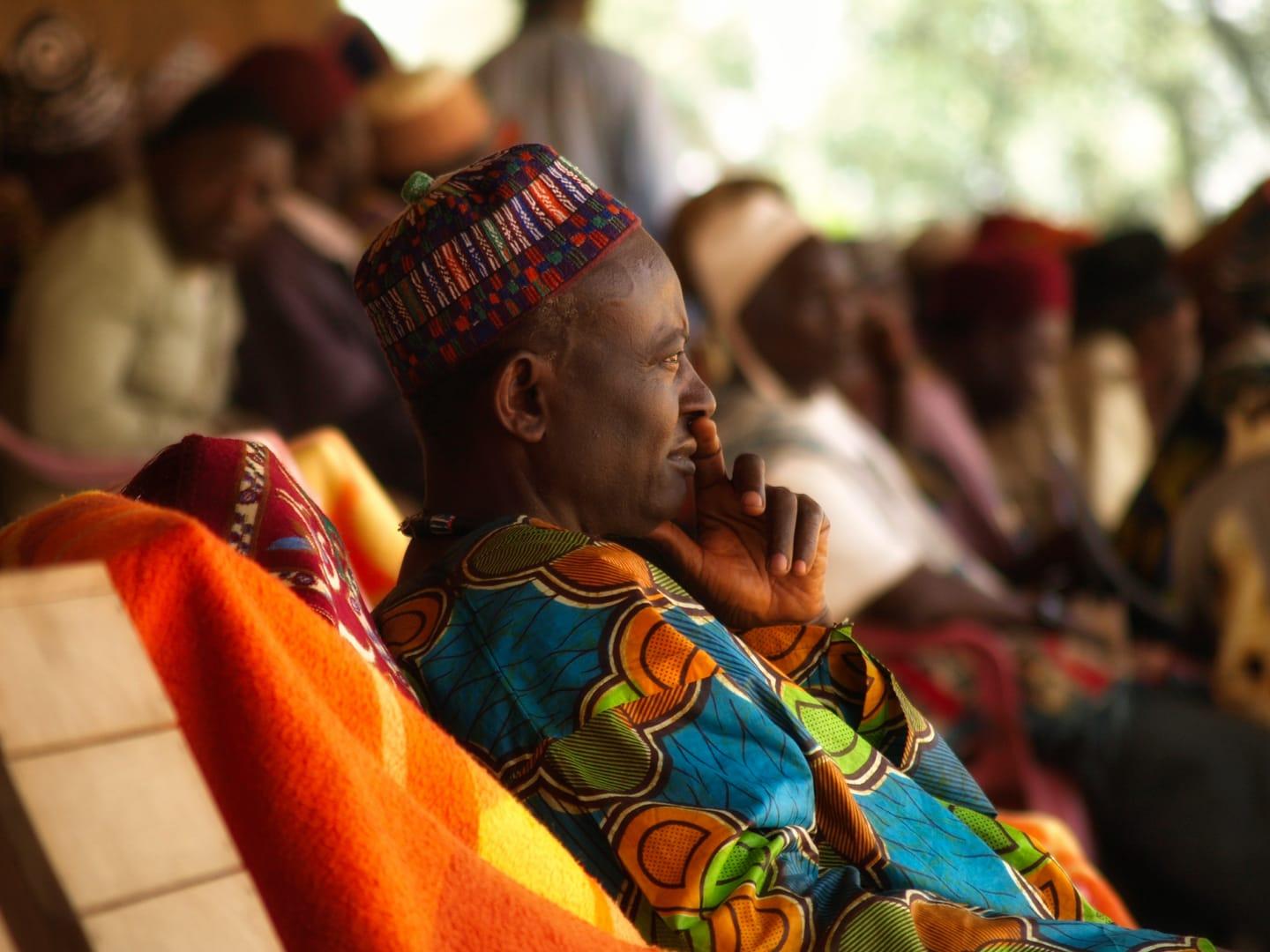YAOUNDÈ, Cameroon – A leading Catholic priest in Cameroon has called for the restoration of the ‘power and dignity” of traditional leaders in the country’s troubled North West region to help resolve the country’s Anglophone crisis.
The conflict pits the military against separatists in Cameroon’s English-speaking regions who claim to have suffered decades of marginalization in the majority French-speaking country and are seeking to establish a breakaway natin called Ambazonia.
Father Humphrey Tatah Mbuy, National Communications Secretary of the Cameroon Bishops’ Conference, has written a new book, Fons of ‘Traditional Bamenda’ and Partisan Politics in Contemporary Cameroon, asserting the politicization of traditional chieftaincies in Cameroon has worsened the conflict.
A “Fon” is the traditional tribal chief in Cameroon, and Bamenda is the area that makes of the English-speaking North West region. Mbuy is a priest of the Archdiocese of Bamenda.
“The Fon was the main custodian of land and culture, primarily the traditional High Priest, the incarnation of the ethnic grouping and divine ancestral institution not open to any manipulations, certainly not to partisan politics,” the priest writes.
Being “at the center of society,” the Fon has to be politically neutral, and should “never publicly express or identify with any political party.”
In his book, Mbuy looks at the history of Cameroon and notes that the German colonists – who ruled “Kamerun” from 1884 until the First World War – showed respect to the Fons.
After the war, when Cameroon was divided the United Kingdom and France, the British continued this policy, using indirect rule to administer what are now the North West and South West regions of the country.
In recognition of this central role of traditional authorities, the German colonialists, and then the British showed enormous respect for the Fons, with the British colonialists in particular using what they called the “indirect rule” system to administer their own part of Cameroon.
“The British recognized, respected and made use of the local chiefs to a point where they created a Southern Cameroons House of Chiefs to enable the local leaders discusses social, economic and cultural issues from their perspective without any partisan political influence,” Mbuy told Crux during the book launch on September 4.
Mbuy said these tribal rulers were so influential that the population would flout the orders of local government administrators if the Fons gave contrary orders.
“If there is a who gives an order and the Fon gives a contrary order, the people will follow the Fon, not the divisional officer, because the divisional officer is an administrator put there where the people don’t feel his real meaning to them. But the Fon is the representative of the ancestors, and this strength of the Fons would definitely be a threat to any government, and it was good politics that some people tried to bring down this power of the Fons by attracting them with some little money and bringing them over on their [political] side, and then the Fons no longer had the power they had before,” Mbuy continued.
British Cameroon was reunited with its French-speaking half on Oct. 1, 1961; the French had given Cameroon independence a year earlier.
Mbuy said the new country feared the power of the tribal leaders, and eroded their responsibilities in administration.
In 1972, President Ahmadou Ahidjo scrapped the House of Chiefs and then enacted laws making traditional leaders “auxiliaries of the administration,” putting them under the local government officials.
Subsequent government used financial incentives to lure the Fons partisan politics.
The politicization of traditional chieftaincies, the priest said, has exposed them to attacks from armed extremists.
“The events leading up to and during the armed conflict in the former Southern Cameroons indicate that it was due to their involvement in partisan politics, with many of them taking sides with the ruling party, that a good number of Fons had to escape from their Fondoms to remain alive. Some went into the diaspora as refugees; some lived elsewhere as Internally Displaced Persons (IDPs) and others were killed … Such a situation constituted a ‘cultural sacrilege which no normal person in Traditional Bamenda could ever have thought of,” the priest told Crux.
“We are fighting to bring them back to where they were, but I am telling you, it will not be easy for everyone to accept it,” he added.
Yet, Mbuy said he believes a sustainable solution to the conflict in Cameroon would be found if the government were to revert to the British-colonial era system of indirect rule.
“If the government went through the Fons, they would get very serious orders throughout the country,” he said, noting that politically neutral Fons would have more leverage in pushing for peace in their communities.
“If you did this, you would have more peace, more organization than we have now. Look at the former Empires of Sokoto, the empires of Mali and those in Burkina Faso. They all survived because the traditional authority was felt; and it is not just authority, it is Divine authority,” the priest said.
Mbuy said for this to work, the Fons need to be financially independent, and suggested that a percentage of land sales from each tribe should go to the Fon, and that every civil servant should contribute a monthly stipend to the the traditional leader.
At the book launch, Willibroad Dze-Ngwa noted that for peace to be returned to Cameroon, the “forces of peace must oppose and overcome the forces of aggression.”
Dze-Ngwa is a peace activist and founder of the Heritage Higher Institute of Peace and Development Studies in Yaoundé.
He called on traditional authorities to “build healthy relations between the military and the population within their chiefdoms in order to rebuild a coordinated positive peace.”














